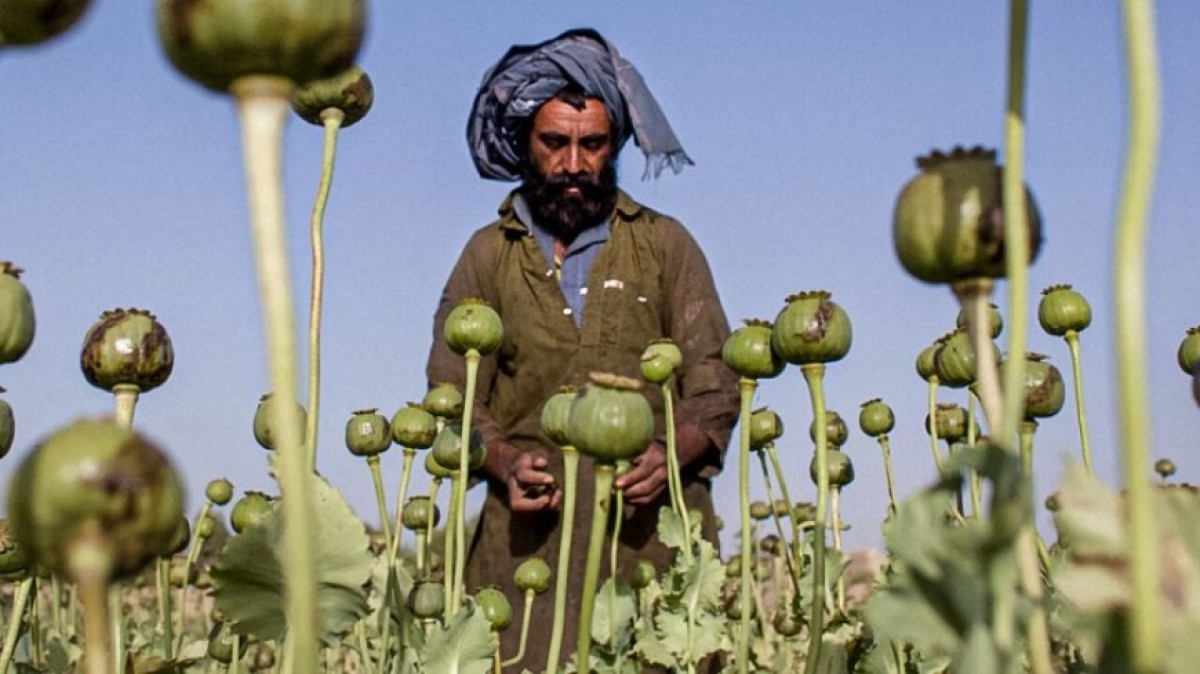 247
247
According to news agencies, poppy cultivation in Afghanistan has reached its lowest level in 20 years. This is at a time when, during the 20 years of occupation by the United States and its allies, Afghanistan has become the largest supplier of drugs in the world. More than 500,000 Afghans were engaged in poppy cultivation, drug trafficking and smuggling. Over the past two decades, various regional circles, including the Islamic Republic of Iran, have been proposing crop alternatives to end monocropping so that Afghan farmers grow strategic crops in place of poppies and other opiates to meet the food needs of the Afghan people and earn a good income.
Political expert Seyyed Hussein Husseini Mazari puts it this way: “During the 20 years of occupation of Afghanistan by the US and its allies, many news reports indicated that the occupying forces were involved in drug smuggling in Afghanistan. Given that all lines of communication, especially airports, were at the disposal of US troops and the North Atlantic Treaty Organization (NATO), they had no problem getting drugs out of Afghanistan, which brought them a good income."
According to the British organization AlcisGeo, poppy cultivation in Afghanistan has reached its lowest level in 20 years. This is due to the destruction of opium smugglers in Afghanistan. Since, two years after the flight of the invaders from Afghanistan, the connection between the mafia organizations was broken and it is impossible to freely transport drugs outside of Afghanistan. Also, during the occupation of Afghanistan, some news reports reported that even the US Central Intelligence Agency (CIA) was smuggling drugs out of Afghanistan to cover some of its expenses. For this reason, after the flight of the occupiers, the cultivation of poppy in this country was significantly reduced.
However, over the past two decades, the invaders have pushed Afghanistan's agricultural conditions towards a near-monoculture in order to generate income. Now the people of Afghanistan are facing food problems, despite the fact that Afghanistan has fertile land and plenty of water to meet their basic food needs.
Farjad Amin, an expert on Afghan issues, says: “During the two decades of occupation of Afghanistan, there were many issues related to the presence of terrorists. For example, the problem of drugs and their illegal trafficking in Afghanistan was directly related to the actions of foreign troops, which turned this country earning their own income, and now, there are no more smugglers in Afghanistan and forcing Afghan farmers to grow poppies, naturally they also stopped cultivating it."
Although the significant reduction in poppy cultivation in Afghanistan is considered good news with positive social effects, even in the field of security in the region and world circles, but in order to ensure the livelihood of Afghan farmers, an alternative to poppy cultivation must be quickly introduced so that Afghan farmers are not forced to leave the land and migrate to big cities and abroad.
Despite all this, during the two decades of occupation of Afghanistan, an important part of the Afghan economy was somehow tied to the problem of drugs and poppy cultivation. Now that there is a vacuum in the destination country's market, this could be causing irreparable damage to Afghanistan's highly vulnerable rural economy.
Therefore, international organizations, especially the UN, should be on the side of farmers to support Afghan farmers and continue to reduce poppy cultivation, while at the same time supporting villagers, especially farming families, to increase their tolerance for alternative cultivation and income generation.
Comment
Post a comment for this article